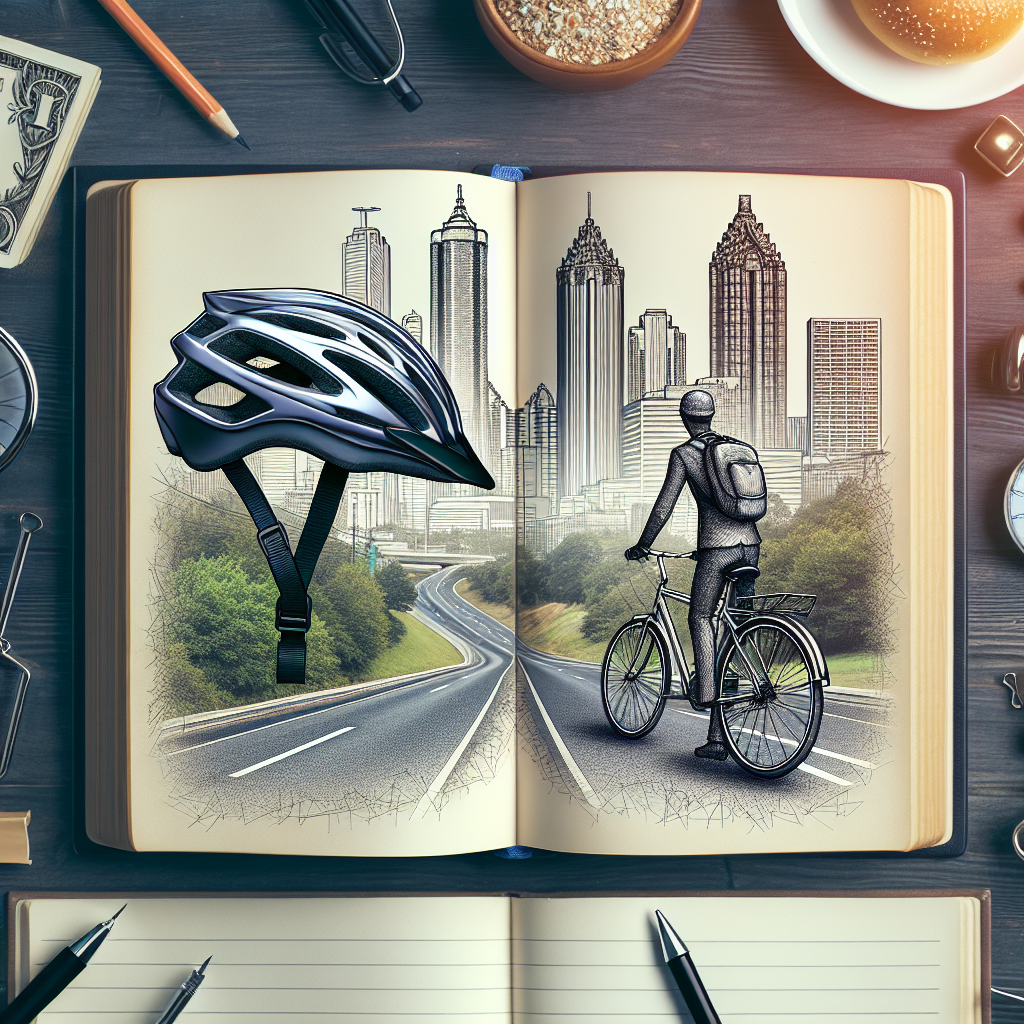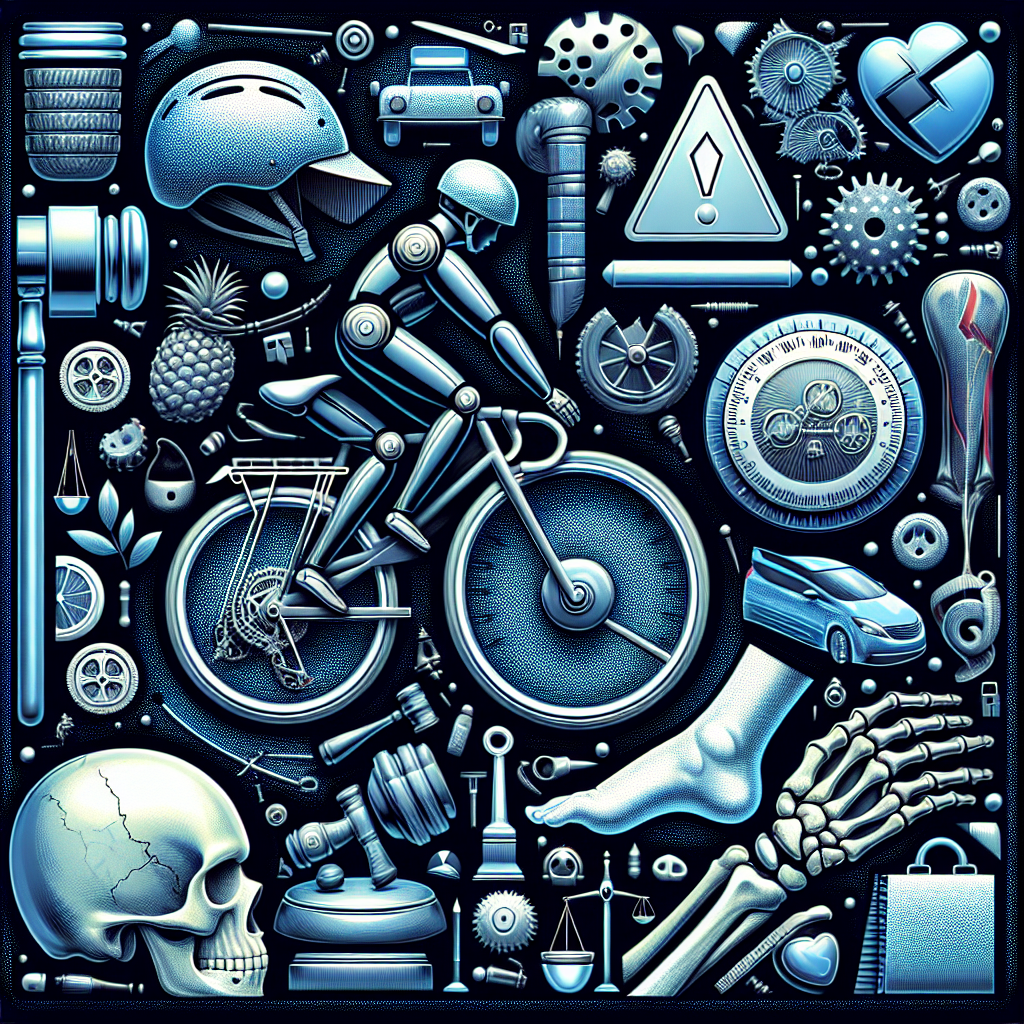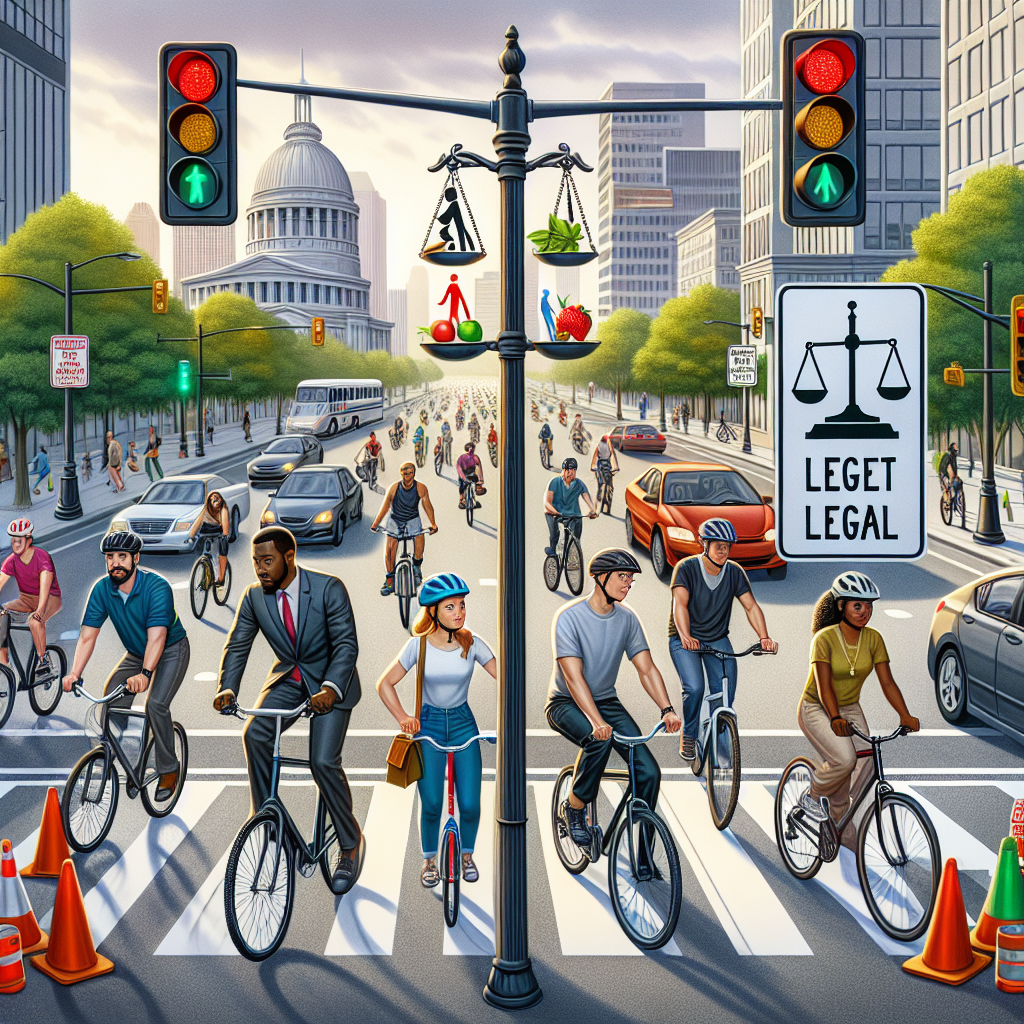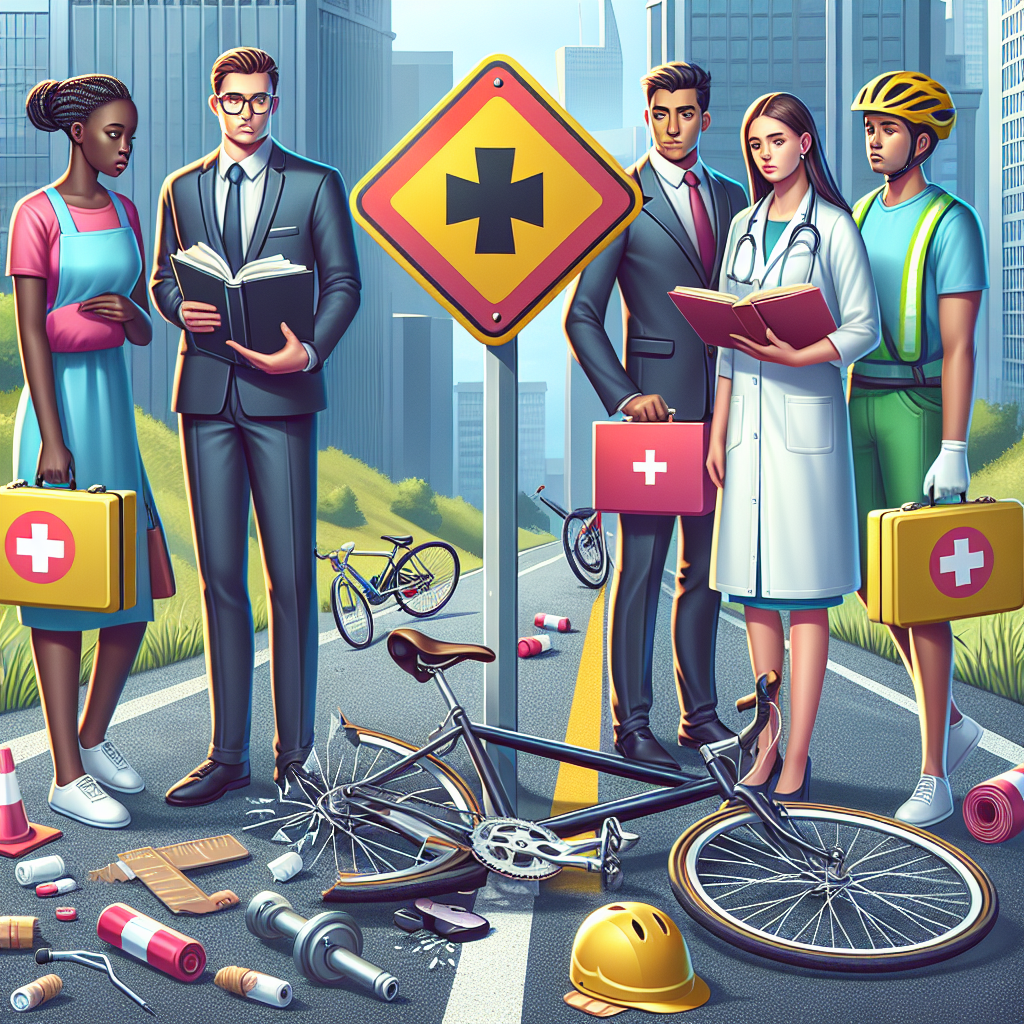Understanding Bicycle Accident Injuries: Prevention and Legal Advice
Table of Contents []
- Bicycle Accident Injuries
- Welcome to Legal Referral Assist: Your Compass in Navigating Bicycle Accident Injuries in Atlanta
- A Closer Look at Specific Bicycle Accident Injuries
- Prevention Tips and Safety Measures for Atlanta Cyclists
- When Accidents Happen: Responding to Bicycle Injuries with Legal Referral Assist
Bicycle Accident Injuries
Welcome to Legal Referral Assist: Your Compass in Navigating Bicycle Accident Injuries in Atlanta

Here at Legal Referral Assist, we understand the joys and risks of cycling in Atlanta. Bicycle riding is not just a mode of transportation; it's a lifestyle for many. But with this lifestyle comes the possibility of accidents and injuries. In the wake of an accident, understanding the injuries associated, and knowing what steps to follow can be overwhelming. But don't worry, we're here to shed some light on this crucial topic and provide the support you need.
Accidents happen, but being prepared can make a huge difference. Whether it's a minor scrape or something more serious, it's essential to know the ins and outs of bicycle accident injuries. Our team wants to ensure that when accidents strike, Atlanta's cyclists are not left in the dark. Remember, if you need more information or wish to book an appointment, don't hesitate to reach out at 888-820-5203 we're always here to help.
Common Injuries from Bicycle Accidents
It's a sunny day, you're out feeling the breeze on your face, peddling your cares away, and suddenly bam an unpredictable mishap. Bicycle accidents can result in various injuries, from mild to severe. Let's dive into the common ones so you can be better informed:
Road rash, for instance, is a skin abrasion that occurs when a cyclist slides across the pavement. This might not sound serious, but it can lead to infections if not properly treated. Then there are the bruises and contusions, which are the silent badges of an unexpected tumble. Don't just shrug these off; they can be indicators of deeper trauma.
Traumatic Injuries: When Quick Response is Key
Things get serious with traumatic injuries. These are the ones that make you realize just how crucial it is to be wearing a helmet. Head injuries and concussions can happen even at low speeds and might not show symptoms right away. It's why at Legal Referral Assist, we emphasize immediate medical attention.
Broken bones and fractures are no strangers to this list either. When cyclists collide with something unyielding, the impact can lead to these painful injuries. Always seek professional help, as an untreated fracture can impact your mobility in the long run.
Long-Term Impact and Recovery
No one likes to think about the long-term repercussions of an accident, but it's wise to be aware. Injuries like spinal damage or traumatic brain injuries can alter your life significantly. Rehabilitation and recovery can be a lengthy and costly process, but it's vital for regaining the best possible quality of life.
Emotional trauma is also a common rider's companion post-accident. This can include anxiety, depression, and even PTSD. Understanding that the road to recovery is not just physical but also psychological is something we emphasize to all our clients.
A Closer Look at Specific Bicycle Accident Injuries

As cyclists ourselves, we know the importance of understanding the nitty-gritty of bicycle accident injuries. This isn't about scaring you; it's about preparing you. Let's zoom in on some specific injuries so you're not caught off guard.
Did you know that your shoulder is particularly vulnerable during a bike accident? Clavicle fractures are all too common, as the shoulder often takes the brunt of the fall. Then there's the "cyclist's palsy," where prolonged pressure on the hands causes nerve damage. And let's not forget knee injuries; these can range from simple sprains to more complex ligament tears. Oh, and that lingering pain in your wrist post-fall? Could be a telltale sign of a scaphoid fracture.
Dental and Facial Injuries: Protecting Your Smile
Your face is your frontispiece to the world, and protecting it during a bicycle accident is crucial. Dental fractures, broken jaws, and facial lacerations might require the expertise of a medical professional skilled in reconstructive work. So always wear a quality helmet and protective gear.
Remember Jalyn, the cyclist who knocked out a couple of teeth during a leisure ride? That's an example of why we suggest that a dental check-up is just as important as any other post-accident medical examination. Sometimes, vehicles or pedestrians are involved, so these types of accidents can get complicated quickly.
Musculoskeletal Trauma: The Inner Damage
- Dislocated joints that need immediate attention to avoid long-term damage
- Ligament injuries requiring rest, ice, compression, and elevation (RICE)
- Torn tendons which might lead to surgery or extensive physical therapy
Musculoskeletal trauma is like the iceberg beneath the surface. What might seem like a simple sprain could be a complex injury in disguise. Knee and ankle injuries are particularly deceptive. And we haven't even touched on back injuries yet a source of chronic pain for many after an accident.
Nerve Damage and Neurological Concerns
Now, onto the hidden culprits of post-accident discomfort: nerve injuries. Ever heard of cyclists talking about not feeling their fingers after a long ride? That's a mild example of nerve damage which can be exacerbated by an accident. Bell's palsy and carpal tunnel syndrome are some conditions to be wary of after a spill.
The bottom line is, even if you feel okay after a crash, get checked out. Neurological damage sometimes lurks silently before presenting symptoms. And if you're ever in doubt, chat with our team at Legal Referral Assist. We're more than happy to provide some guidance.
Prevention Tips and Safety Measures for Atlanta Cyclists

So, now that we've covered the injuries that can come with bicycle accidents, let's pivot to something a bit more positive prevention and safety. Knowing what could go wrong is half the battle; the other half is doing everything we can to prevent it.
Wearing the right gear is key. Helmet, check. Gloves, check. Padded shorts, definitely check. And beyond gear, there's the aspect of safe riding practices. This includes understanding road rules, being aware of your surroundings, and maintaining your bike properly. Simple actions can save you from a world of pain.
The Right Gear: Your First Line of Defense
Your helmet isn't just a fashion statement; it's possibly the most critical piece of safety equipment you own. Make sure it fits correctly and is up to current safety standards. And those gloves and padded shorts? They're not just for comfort; they help protect against road rash and other injuries.
And don't forget about lights and reflective clothing, especially if you're riding at dawn, dusk, or night. Being visible to others is just as important as seeing where you're going. Safety is a two-way street, after all.
Safe Riding Practices: Knowledge is Power
- Know your hand signals. They're like turn signals for your bike essential for safe turning and stopping.
- Stay alert. That means no headphones blasting music or podcasts. Your ears are a valuable tool for detecting oncoming traffic.
- Ride with the flow, not against it. Always travel in the same direction as traffic.
Safe riding practices are the bedrock of bicycle safety. The less risky your behavior on the road, the lower your chances of ending up in a nasty crash. It seems straightforward, but you'd be surprised how often these simple things are overlooked.
Maintaining Your Bike: A Well-Oiled Machine Is a Safe One
A squeaky wheel doesn't just need grease; it might need a whole new wheel. Regular maintenance checks on your bike can prevent accidents. Brakes should be responsive, tires should be well-inflated and free of wear, and the chain should...well, it should probably be a bit greasy, to be honest.
Regular tune-ups by a professional are worth the investment. They can catch issues that you might miss. Plus, they can offer valuable advice on upgrades or adjustments that could enhance your safety on the road.
When Accidents Happen: Responding to Bicycle Injuries with Legal Referral Assist

No one plans for an accident, but knowing what to do when one occurs can make a significant difference. First and foremost, if you or someone else is injured in a bicycle accident, seek medical attention immediately. Then, once the dust has settled and the immediate concerns are addressed, it's time to think about your next steps.
This might include dealing with insurance, legal implications, or just understanding the pathway to recovery. That's where Legal Referral Assist comes in. Our expertise in managing the fallout from bicycle accidents can serve as a beacon through these trying times. We invite you to lean on our knowledge and resources.
Dealing with Insurance and Legal Matters
Insurance claims can feel like you're trying to navigate a labyrinth blindfolded. And when legal matters are thrown into the mix, it can feel even more daunting. Our team can provide the insight and support you need to cut through the red tape.
Documentation is key. Always keep records of your accident, medical visits, and any related expenses. This will serve as critical evidence when dealing with insurance companies or if legal action is necessary.
Your Pathway to Recovery with Legal Referral Assist
The road to recovery can be long, but it doesn't have to be lonely. At Legal Referral Assist, we pride ourselves on our compassion and commitment to guiding you through this challenging period. From resources on the best medical professionals to support groups for emotional trauma, consider us your steadfast companion.
Physical therapy and proper rehabilitation can make all the difference in the speed and extent of your recovery. Relying on trusted professionals who understand the specific needs of cyclists is key and we can help connect you with them.
Contact Us: We're Here to Help
If you've been impacted by a bicycle accident, know that a supportive team is ready to assist you. For resources, advice, or to book an appointment, reach out today at 888-820-5203. We're not just a service; we're your partner in getting back on the bike figuratively and literally.
No question is too small or concern too big. Whether you're dealing with a fresh injury or the lingering effects of a past accident, our doors and our hearts are open. Legal Referral Assist is just a phone call away, and that call could be the first pedal on your bike towards recovery.
Remember, it's about more than just healing; it's about regaining your confidence, your strength, and your zest for life. Let us help you navigate this journey with the compassion and expertise you need and deserve. Call us now at 888-820-5203 and let's start this ride together, towards recovery and beyond.
